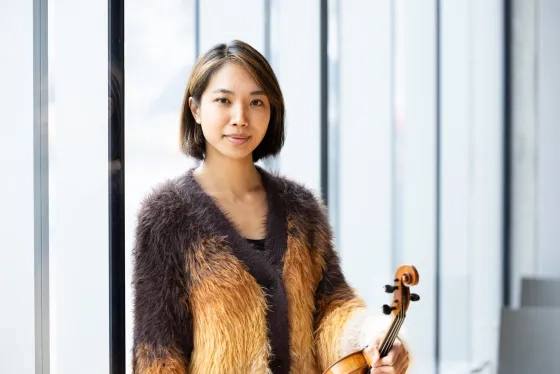Meet Your Faculty: Nancy Zhou
Eighth NotesNancy Zhou explains how she thinks about movement in her performances to communicate more to the audience.
"You must have a plan before you play, and rhetorics of performance must be a centerpiece of that plan: how to use your body to create the most compelling and truthful presentation of a work. It's not just about playing the notes 'properly' and relying solely on instinct: you have to find the balance between pathos and logos, an optimal physical setup, one achieved by exploring breathing and movement. How you're navigating your body to promote minimal tension, and making a differentiation between tension and effort. Effort sets itself apart from tension, in that there's some kind of release following effort; that balance I think is inherent in music-making.
For me, studying works by J.S. Bach has allowed me to think more deeply about rhetorics, because his music is so governed by the concepts of transitions and arrival points. Since music is life writ large, I started thinking, 'Well, in everyday life you also have arrival points and acts of journeying to get to that certain point in time.' And over the last few years, I started listening more to opera, which prompted me to think about how we enunciate, talk, or sing— actions that necessitate designed breathing. One of the many lifelong questions for a musician is, 'What are some of the natural ways to breathe while trying to sculpt a phrase with the voice, and how may that apply to instrumental playing?'
With any effort that we draw out from the body—because we have to use the body to play the instrument—we have to intake energy, or inhale, but then we have to release that energy, or exhale, when we arrive at a certain point in any music we explore. Because of this, I do think that choreography, in addition to breathing, is an important element that ought to motivate us as performers. Sound is a function of movement. So, to ultimately attain freedom of expression and empathetic communication with other musicians, you strive for specificity in the way you navigate your body, hands, and fingers: how you're going about producing a certain color of the sound palette in order to get as close as possible to realizing your intentions, coalesced with those of the composer."
— Nancy Zhou, violin faculty
